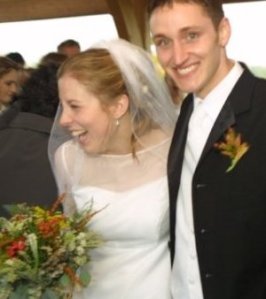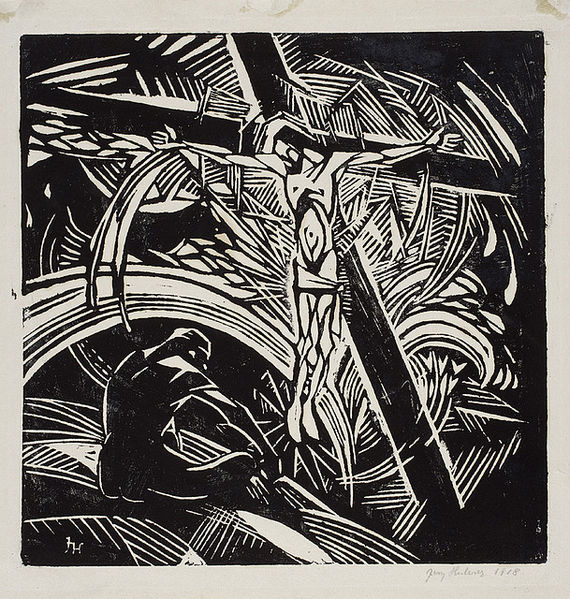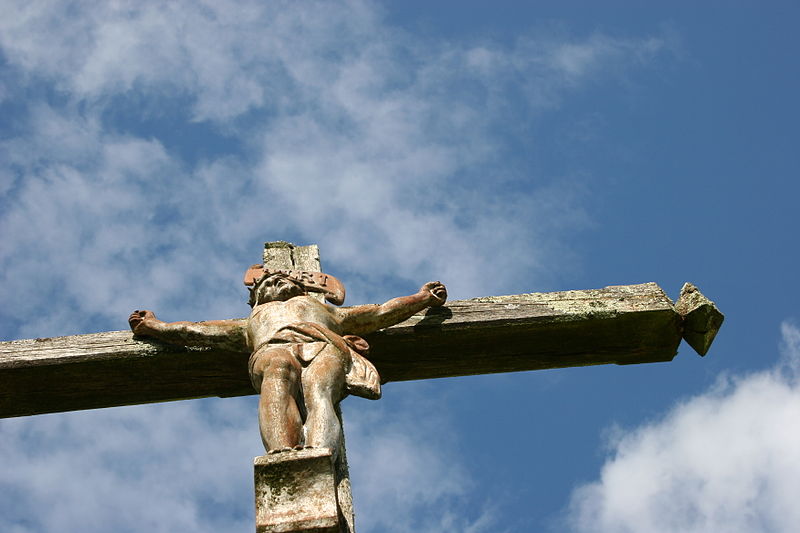Dear Beginning-Church-Planter’s-Wife Me:

I see you there, with your earnest zeal and your highlighted crinkle-paged Bible and your life verse that reminds you to run hard. I know how you love Jesus and delight in his church, and I’ve watched you sing For All the Saints with gusto every November.
I’ve read that fat stack of books by your bedside, the ones that tell you how to organize your house and make the most of your time, the ones with lists for Scripture memory and Bible study and scheduled exercise and regular sex and balanced meals and the Exhaustive Guide to being an Excellent Wife™ .
I see you packing up boxes for your cross country move — your three-year old tangled up in packing tape on one side, your sixteen month old and his unsupervised Sharpie on the other, and that brand new baby strapped to your front. As your southern friends from the church you’re leaving would say: Bless your heart.
You think you’re familiar with church planting. After all, you’ve been involved in one from the ground up. You’ve experienced the worry of empty chairs, and you’ve sat through meetings where opinions flared and people hashed out mission statements. You’ve raised your hand more than once to meet a need.

Aaron’s ordination to the diaconate – March 2007
You’ve played piano and taught Sunday school. You’ve set up welcome tables and served snacks. You’ve prayed and laughed and rejoiced and grown. You’ve weathered seminary and youth ministry and stood by your husband while he took his ordination vows. Together you have a handful of years of ministry and some associate pastoring under your belt. You think you know what’s coming.
Bless your Jesus-loving heart.
When your baby is six weeks old, I see you move from South Carolina to Seattle where every trip to the grocery store is full of people marveling at how full your hands are.
You have three children three-and-under, a two-bedroom apartment, and one visionary husband.
You think you can handle it, because you can do all things through Christ who strengthens you. And sleep-deprivation is hard but deny yourself and consider others as more important and you are an unprofitable servant and take thoughts captive, because all the books you’ve read have told you how to be Good.
So the night before every church plant meeting you hunt the internet for children’s craft ideas. After all, three of the five kids are yours, and no one else is offering, and you might as well, because the last sermon you ever fully listened to was the one before your first due date.
And you stock your purse with snacks and books that keep little ones quiet until the singing. They do their best, but you still worry that they are too loud, and then you worry about all the possible negative effects of being a PK, and as much as you loved reading the works of Martin Luther and Jonathan Edwards you’d give it all up for one seminary class on how to solo-parent young children from set up to tear down of the Anglican service.
Because that’s what church has become: service. Serving and teaching and praying and filling in at the piano if they really need it and minding children and making sure you say hello to the new people and checking in with that woman having a hard time and putting on the coffee and wiping the craft glue off the tables and smiling and smiling and smiling. Oh, Honey. Bless your wrung out, well-intentioned, zealous, driven little heart.
 You don’t even know how lonely you are. Years of ministry have given you a strange sort of relationship-mode that is the enemy of true intimacy. Keep working at this. People aren’t ministry projects; friendship is worth it, and you need others who can see you for who you are not what you do. And though it’s hard to find, believe me, you’re going to need some solid friends around you for what comes next.
You don’t even know how lonely you are. Years of ministry have given you a strange sort of relationship-mode that is the enemy of true intimacy. Keep working at this. People aren’t ministry projects; friendship is worth it, and you need others who can see you for who you are not what you do. And though it’s hard to find, believe me, you’re going to need some solid friends around you for what comes next.
Because, Girl, those things you think you’ve dealt with from your past? Yeah, you haven’t.
And this perfect storm of children and transitions and job moves and family dynamics and illness and financial stress is about to explode all over the place. You want to please your husband and please your kids and please your parents and please the church and, above all, please God, and all that pleasing has you working so hard to save your Good Christian life that you’re blind to the danger of losing your soul.
I see you default into self-denial when the stressors come, as if legalism and doing the Right Thing and ordering your time wisely and choking out the bad will somehow fill your life with good.
It’s not working out so well for you.
That taking up your cross you think you’re doing? It’s really a form of self-loathing. And all that service? Somewhere along the way you’ve picked up the lie that love means meeting the needs of other people and oh, Honey, you’re in trouble because the world is aching with need, and the church is full of broken people, and there will always be more you could do, and your shoulders were never meant to bear that weight.

© Copyright Jerzy Hulewicz and licensed for reuse at Wikimedia.
Your cracked and dry heart is desperate for someone to see and know and approve, and all the serving and loving and smiling won’t ever fill it. But it will take a few years for you to get there yet. You’ll tread water awhile, because that message you’ve carried around from middle-school youth group has taught you well — Jesus first, Others second, Yourself last — and you don’t yet know any other way to live.
And then you’ve read all those marriage books. The ones that tell you to support his dream and be a strong helper, and of course you’re going to, since you love your husband, and you love the church. And so you lean in even more, because aren’t the two meant to become one? And a wise pastor’s wife once told you that it shouldn’t be a church hiring two for the price of one, but the messages to serve more and do more ring a little bit louder.
So you think of it is as “our” job and “our” calling, and neither of you really know any better, because in a church plant there’s too much to do and too few volunteers, and the scarcity mindset takes over. You get tricked up by your own competency, and you believe the faulty math that says if you can do it and no one else is doing it then you should do it.
Eventually you’ll let go. You know and believe that it’s God who grows his church, and in time this trickles down to melt your perfectionism and drivenness. You’ll see that your volunteering might actually be excluding the person who finds great joy in that ministry, and you’ll discover that it’s acceptable for the nonessentials to fall by the wayside.
The children won’t mind Hot Wheels coloring books for a Sunday, and that one couple will happily set up tables, and what do you know? After a few mornings with no snacks, somebody else begins to bring them. And the Martha in you will come to accept that when there’s no coffee on Sunday, the work of the kingdom will still go on. Even in Seattle.

© Copyright J J Harrison and licensed for reuse at Wikimedia.
And slowly, slowly, you’ll begin to stop. Mostly because you cannot continue at that pace. Your mind and your body and your marriage will all stretch thin until the crippling anxiety irrationally shouts at you that you are in danger.
Because you are.
All your books on Having a Good Christian Marriage won’t prepare you for the moment when both of your coping mechanisms fall short, and you discover his human-ness and can’t escape your own, and the unhealth of the Try-Harder Christian Life slaps you straight in the face until you realize that bending in to another person is never the way to wholeness. It will take you some time to see that becoming one doesn’t equal two people eliminating themselves but requires two wholes bringing all their separateness and individuality to the marriage. So, Girl, get yourself to a family therapist, because that perfect storm? It’s done a number on your marriage.

Photo: ©2001, Todd Buchanan
And eventually that day will come when you and he stop bending in to each other and instead slowly straighten up, letting the crooked spine unfurl and the disjointed things pop back into health until you are standing side by side, hands clasped, looking straight up to Jesus.
That posture brings in the conversations where you can sit and listen and really see your husband without jumping in to fix or problem-solve or analyze a situation. You will find yourself happily ignorant of the politics of the latest vestry meeting, and you will stay home from church when the children are over-tired, and when you do go, you might just sit somewhere quiet rather than jump in with an automatic, “How can I help?” When you recognize that church planting is his job and not yours, you will respect and cheer him on in a new way, and you will find the freedom that comes from setting aside all the need and drivenness and instead consider where you the individual – not the pastor’s wife or the mother – fit into the life of the church.

Mepkin Abbey, SC
And old wounds will begin to heal – the sting of those early days of seminary when people started asking your husband what he was studying and looked right past you. The hurt that cut deep on that first mission trip where you only wore the label spouse and the aching identity crisis that threw you for a loop when you became defined by motherhood. The wounds of a lifetime that say any self at all is selfish.
When our strange culture breathes the question, “What do you do?” it leaves you defined as a pastor’s wife and a church planter’s wife and a stay-at-home mom, and while all of that is true, what you do does not name who you are. And, oh, I know it hurts, but all of this is part of the process to strip off the old and the false in you, because the seed has to die before it can bear fruit. Just wait. Hold on, because freedom and new life tastes good, and you won’t ever want to go back to the old way of doing things.
 But before you get there I see you on the dark days. The ones where you feel trapped and hurt and lonely and afraid. The times when it feels like all either of you are doing is working, and the money is never enough, and his shoulders slump when the critical comments come from the parishioner you thought was on your side, and you want to camp out with Elijah and despairingly say: I have been very zealous for you, Lord.
But before you get there I see you on the dark days. The ones where you feel trapped and hurt and lonely and afraid. The times when it feels like all either of you are doing is working, and the money is never enough, and his shoulders slump when the critical comments come from the parishioner you thought was on your side, and you want to camp out with Elijah and despairingly say: I have been very zealous for you, Lord.
I see you fantasize about a “normal” job where he can clock out at five, and you try and remember what it felt like to have his arm draped over your shoulders during the sermon and how it was to hoard Christmas week all to yourself. The plain truth is that some of the ins and outs of church planting are just difficult, and you will never recoup the cost.
But it’s time to let go the cultural lie that says being a pastor or church planter (or his wife) is somehow The Hardest.
Because it’s not.
Just like Elijah was not the only one in Israel, you and your family are not the only ones whose jobs squeeze tight or who struggle with the circumstances that beat them down. You need to hear that it’s not just you who’s stretched thin by life, it’s everyone else in the church, every single person who comes on Sundays, and it’s why all of you line up together in that long row for communion, because you all are desperate for the life-giving Bread of the world.

© Copyright Daniel Dauria and licensed for reuse at Wikimedia.
You’re hungry for Someone to see you and know you and approve of you, and oh how happy I am for the day when you sing Jesus Loves Me with the kids for the thousandth time and begin to believe those words for yourself. It’s like the way you’re crazy about your children, but not because they play so excellently or do childhood so well – you love them because you can’t help but do anything else: they’re your kids. He sees you and knows you and loves you, but not for what you do. He loves you because you’re his, so drop that basket and open your arms wide for God to fill them with his goodness.
But all of that’s still ahead of you, and right now you’re in the thick of it. I’m not going to advise you to pray harder or read your Bible more or memorize longer Scripture passages. I’m not going to tell you to look to Jesus or choose your feelings or serve others. In fact, I’m not going to give you any advice at all, because your hard-working, sleep-deprived, driven little heart is going to latch on to the doing, and I know how easy it is for good Christian women to even Martha-ize sitting at his feet.

Instead I’m going to remind you of the truth: you belong to God. He gently leads those who have young. He’s got you. Instead of leaning in more, you can lean back into him.
Because what’s hardest for you to believe is that when Jesus says his yoke is easy and his burden is light, he really means it.
Doing more, self-denying more, giving more or serving more won’t bring you more life, it just sends you endlessly going, rising up early and going to bed late, laboring in vain. And he hasn’t promised you a treadmill – he’s promised you life.

© Copyright Michael Gäbler and licensed for reuse at Wikimedia.
Grace is kind of an all-or-nothing game. Go all in on grace. Rest. Be still. Breathe. Let go. Find joy.
It’s his church. He’s building it. And, in the meantime, he gives to his beloved even while they sleep.
And bless your exhausted little heart, you need some.
*****
Marissa lives in Seattle. When you ask her what she does, she will answer that
she writes novels for children, reads lots of books, and loves playing board games with her family.
But she’s trying to stop defining herself by what she does, so here are some things she finds delightful: British mysteries, cats curled up on blankets, the smoky smell of autumn, cold rainy walks along the Pacific Ocean, and roasted sweet potatoes.
You can find Marissa online at marissaburt.com.




















